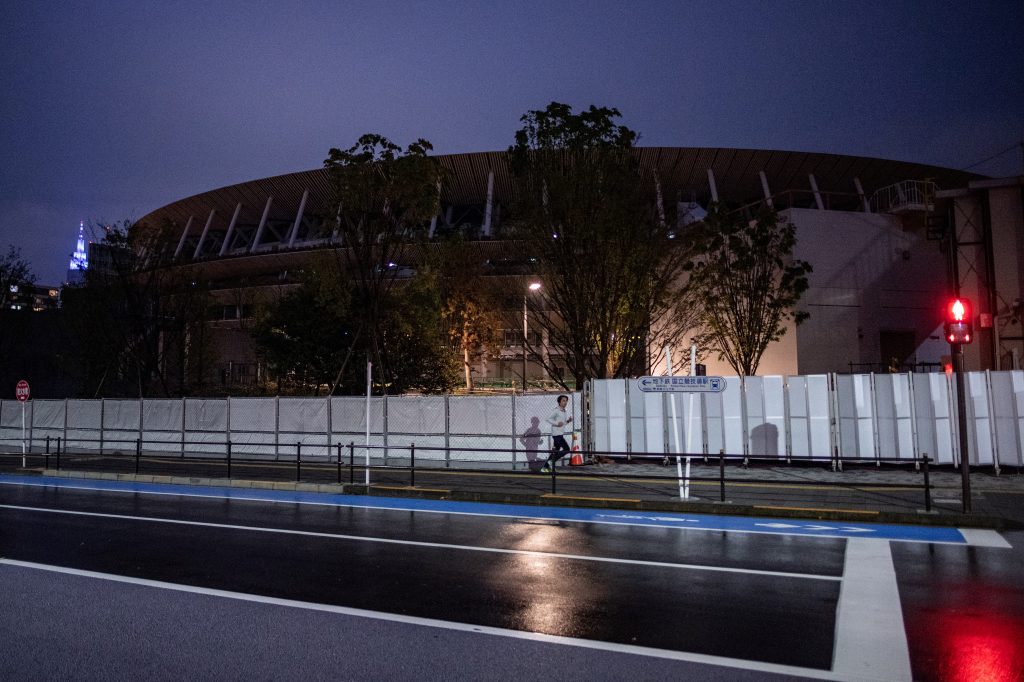
- ARAB NEWS
- 06 Jul 2025

TOKYO: Japan should seek to cooperate with other countries to overcome the novel coronavirus pandemic toward the Tokyo Summer Olympic and Paralympic Games, postponed by one year to 2021 due to the epidemic, taking a lesson from its failure to hold the Olympics in the capital 80 years ago due to war, an expert has said.
“Japan must not repeat its experience of being isolated in the world and forced to give up on holding the (1940) games,” Nihon University professor Takahisa Furukawa, an expert on the modern history of Japan, said. “Cooperation, including from developing countries, should be sought” to contain the coronavirus pandemic, he said.
The International Olympic Committee in March this year decided to put off the 2020 Tokyo Olympics to next year because of the virus crisis. The Tokyo Paralympics has also been delayed by one year. With the pandemic still raging in the world, there is speculation that the Olympic and Paralympic Games could be called off.
After achieving reconstruction from the 1923 Great Kanto Earthquake, the Japanese capital launched a campaign to host Olympic Games, the first in Asia, in 1940. Tokyo won the race by beating Helsinki in a vote at the 1936 general meeting of the IOC.
But a war broke out between Japan and China in 1937, and as the war dragged on, the then Japanese army started refusing to cooperate in holding the Olympics. In addition, strict controls were put on materials supplies, resulting in the suspension of construction work for stadiums due to steel shortages.
Also given growing doubts from abroad about holding the games in Tokyo under the circumstances, the Japanese government at the time decided in July 1938 to gave up its right to hold the Olympics, opting to continue the war.
Also in 1940, the Winter Olympic Games was slated to be held in Sapporo, the capital of the northernmost Japan prefecture of Hokkaido, and a world exposition in Tokyo and Yokohama, Kanagawa Prefecture, which neighbors the Japanese capital. But all these events were postponed due to the war.
“Japan was isolated in the world and could not repair relations with other countries,” Furukawa said, noting that this was the “fundamental reason” for Japan having to relinquish the right to hold the Olympics.
At the time, some countries showed moves to boycott the Tokyo Olympics amid the dominant view on the Japan-China war that it was a war of aggression against China. The Japanese government feared the possibility of foreign athletes not coming to Japan, according to Furukawa.
Japan lost chances for ceasefire as it tried to save its face, and instead continued the war for natural resources. Some Japanese athletes who aimed to take part in the Olympics lost their lives after being drafted in the war.
Furukawa said: “If the Japan-China war had been stopped, the Pacific War, part of World War II, would not have happened and history would have changed. Japan chose war over the Olympic Games.”
“International cooperation is indispensable for holding Olympic Games,” which attracts numerous people from around the world, he said.
The novel coronavirus continues to spread, and some developing countries are having difficulties handling the crisis on their own.
Next year’s Tokyo Olympic and Paralympic Games cannot be held unless the coronavirus is brought under control in not only Japan but also other countries, Furukawa said. “Japan should act to help the whole world contain the virus.”
JIJI Press